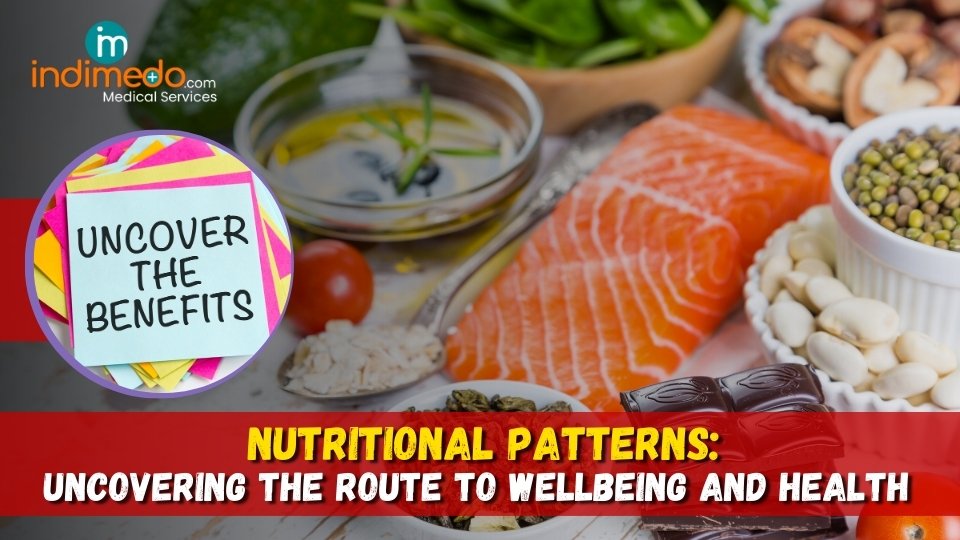A Path to Inner Harmony with Emotional Balance

Introduction
Achieving emotional balance is becoming more and more important for general wellbeing in the fast-paced world of today. Effective emotion management is a key component of emotional balance, as it promotes inner stability, resilience, and serenity in the face of adversity. This thorough manual covers a wide range of methods, approaches, and perspectives to support people in developing and preserving mental balance in their lives.
What is emotional balance?
The true feelings we have regarding things are called emotions. Everybody has both happy and bad emotions throughout their lives. To maintain good mental health, we need to strike the correct balance between happy and unpleasant emotions, at least most of the time. This is known as emotional balancing.
Understanding Emotional Balance
Explores the idea of emotional balance in detail, explaining its importance and effects on both physical and mental health. Through understanding the complex interactions among ideas, emotions, and actions, people can acquire important knowledge about attaining emotional balance in their lives.
The Importance of Emotional Balance
To live a meaningful life, one must maintain emotional balance, which has several benefits such as lowering stress and anxiety and improving relationships and decision-making skills.
Factors Influencing Emotional Balance
Emotional balance is influenced by a multitude of factors, such as the environment, life events, parenting, and heredity. Examining these elements can assist people in comprehending their emotional environment more fully and creating useful coping mechanisms.
Strategies for Cultivating Emotional Balance
A complex strategy including self-awareness, self-regulation, and resilience-building methods is needed to achieve mental balance. This website for emotional balance provides helpful advice and techniques to help people on their path to emotional stability.
Mindfulness Practices
Developing present-moment awareness and accepting oneself, thoughts, and feelings without passing judgement are key components of mindfulness practice. Deep breathing techniques, body scans, and mindfulness meditation can all be incorporated into daily routines to help people become more emotionally resilient and less reactive.
Emotional regulation techniques
The ability to properly identify, comprehend, and control one's emotions is known as emotional regulation. Strategies like expressive writing and relaxation exercises can help people deal with difficult emotions more calmly and easily.
Healthy lifestyle habits
Taking a comprehensive approach to emotional balance includes developing wholesome lifestyle practices that uplift the body, mind, and soul. Regular exercise, a healthy diet, enough sleep, and social interaction all contribute to emotional well-being and increased stress resilience.
Nurturing emotional intelligence
The foundation of emotional balance is emotional intelligence, which includes the capacity to recognise, comprehend, and control one's own and other people's emotions. Emotional Balance explores useful methods for improving emotional intelligence and developing stronger relationships with others.
Self-awareness and self-reflection
Gaining understanding of one's thoughts, feelings, and behaviors without passing judgment or criticizing oneself is a necessary part of developing self-awareness. Self-reflection techniques like journaling, introspection, and mindfulness help improve emotional self-regulation and lead to a deeper sense of self.
Empathy and compassion
Emotional intelligence requires empathy and compassion in order for people to build meaningful relationships and connect with others on a deeper level. Compassion and empathy for oneself and others are fostered by engaging in activities such as perspective-taking, active listening, and acts of kindness.
Overcoming emotional challenges
There will always be ups and downs in life, and dealing with emotional difficulties is a necessary aspect of being human. The website Emotional Balance offers tips and techniques for getting past typical emotional obstacles and developing perseverance in the face of hardship.
Coping with stress and anxiety
Stress and anxiety are commonplace and can present serious obstacles to emotional health. Acquiring knowledge of efficient stress management methods, like time management, boundary-setting, and relaxation exercises, enables people to deal with stress more skillfully and develop inner peace.
Managing negative emotions
Anger, grief, and fear are examples of negative emotions that need to be managed with competence and self-awareness. The site Emotional Balance examines healthy methods of processing and expressing emotions, like writing in a notebook, expressing oneself creatively, and asking for help from mental health specialists or trusted friends.
Cultivating Optimism and Resilience
Resilience is an essential quality that helps people overcome obstacles and disappointments with newfound resolve. Perseverance in the face of difficulty is fostered by adopting a positive outlook, expressing gratitude, and viewing obstacles as chances for personal development.
Embracing emotional growth and transformation
Emotional balance is a dynamic process of development, education, and self-discovery rather than a static state. The site Emotional Balance invites readers to celebrate advancement, embrace the innate beauty of the human experience, and embrace the journey of emotional growth and transformation.
Embracing vulnerability and authenticity
It takes courage to be one's true self in public, to accept flaws, and to accept the whole range of human emotions to embrace vulnerability. People who are willing to be vulnerable with one another and with themselves develop stronger bonds with each other, which increases emotional closeness and authenticity in relationships.
Cultivating Gratitude and Joy
Joy and thankfulness practices build mental strength in the face of hardship and a sense of appreciation for life's gifts. Positive thinking and improved mental health are fostered by practicing thankfulness, which includes journaling, thanking loved ones, and appreciating the small things in life.
How to distinguish emotions
Feelings of any kind originate in our mental awareness rather than in our physical senses. Though we certainly feel things through our senses, our emotional responses to things always occur at the level of our mental consciousness within ourselves. From this vantage point, emotions interact with objects in a mental picture that is sometimes inaccurate.
The capacity to be in the moment of your feelings without allowing them to control you or avoiding them is known as emotional balance. Being able to sense your emotions and recognise how they impact your body and mind is a talent that is well worth acquiring. Consider physical suffering and how we grow accustomed to avoiding flames that could burn us or sharp objects that could scratch our skin.
We are equally adept at concealing the emotional suffering that makes us feel helpless or overpowered. We work, keep ourselves occupied, or engage in activities that allow us to suppress the feelings that beg to be expressed. This might help for a time, even years, but ultimately the mental anguish will resurface and demand your attention because the body never forgets these emotional weights.
Mattieu Ricard
Achieving emotional balance involves bringing our bodies, minds, and emotions into balance as well as embracing our feelings and emotions. The body contains a wealth of incredible knowledge that aids in navigating life's highs and lows.
Every day when we wake up, we have all we need to face any challenge life may present. You may become the finest version of yourself by using counselling to help you overcome your obstacles The emotional self-control and resilience required for excellent mental health and emotional well-being can be developed.
People who want to develop resilience and emotional balance in their lives can find a wealth of information on emotional balance. A transforming journey towards inner harmony and fulfillment can be undertaken by readers by delving into the various aspects of emotional well-being and implementing useful practices for self-care and personal improvement.
Conclusion
Finding balance in your emotions is a process that calls for constant personal development, self-awareness, and self-compassion. People can overcome obstacles in life more easily and gracefully by developing their emotional intelligence, resilience-building abilities, and mindfulness, which promote inner peace and wellbeing.





 Login with Facebook
Login with Facebook
 Login with Google
Login with Google